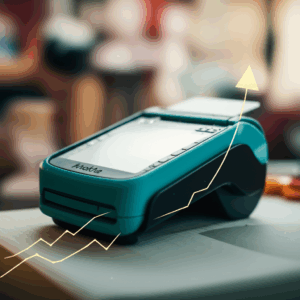A New Chapter for South African Business: Demystifying the Ikhokha Nedbank Deal

The Ikhokha Nedbank deal has become a major talking point in South Africa’s vibrant financial technology sector, sparking conversations filled with both excitement and apprehension. For the thousands of small and medium-sized enterprises (SMEs) that rely on Ikhokha’s tools to accept payments and manage their operations, the news of a major bank like Nedbank taking a significant stake in their trusted fintech partner raises a critical question: What does this mean for the future? Is this a powerful alliance set to accelerate business growth, or does it signal the beginning of the end for the agile, independent brand that has championed the underdog entrepreneur? This article will unpack every facet of this landmark partnership, separating fact from fiction and providing a clear, comprehensive guide to what this strategic move means for merchants, the SME sector, and the future of fintech in South Africa.
What we find in this blog?
Who is Ikhokha? The Rise of an SME Champion
To truly understand the significance of this partnership, one must first appreciate Ikhokha’s journey and its unique position in the market. Founded in 2012 by Matt Putman, Ramsay Daly, and Clive Putman, Ikhokha was born from a simple yet powerful mission: to empower South Africa’s entrepreneurs by providing them with accessible and affordable payment solutions.
At the time, traditional banking systems largely catered to established, formal businesses. Small vendors, informal traders, and burgeoning startups were often locked out by high-cost point-of-sale (POS) systems, prohibitive monthly rental fees, and complex application processes. This financial exclusion created a significant barrier to growth, forcing many small businesses to operate on a cash-only basis, limiting their customer base and making them vulnerable to the risks associated with handling physical money.
Ikhokha entered this landscape as a disruptor. Their core value proposition was to democratize card payments. They achieved this through several key innovations:
- Low-Cost Hardware: Instead of expensive, bulky terminals, Ikhokha introduced small, mobile card machines like the Ikhokha Mover and later the Shaker series. These devices could be purchased outright for a low, once-off cost, eliminating intimidating long-term contracts and monthly rental fees.
- Simple Fee Structure: They implemented a transparent, pay-as-you-use transaction fee model. This was a game-changer for businesses with fluctuating income, as they only paid for the service when they made a sale.
- User-Friendly App: The hardware was paired with a powerful, intuitive smartphone app. This app did more than just process payments; it evolved into a business management tool, allowing merchants to track sales, manage inventory, and gain valuable insights into their performance.
- Focus on the Underserved: Ikhokha deliberately targeted the informal sector, spaza shops, market stall owners, and independent service providers—the very entrepreneurs the traditional banking sector had overlooked.
This approach resonated deeply with the South African market. Ikhokha experienced exponential growth, becoming a trusted partner for over 200,000 businesses across the country. Their bright blue branding became a symbol of empowerment, signifying that any business, no matter how small, could participate in the digital economy.
Nedbank’s Strategic Pivot: Embracing the Fintech Revolution
On the other side of this deal is Nedbank, one of South Africa’s “Big Four” banks. As a legacy institution, Nedbank has a vast infrastructure, a massive customer base, and a deep well of regulatory experience. However, like all traditional banks globally, it has faced increasing pressure from agile, customer-centric fintech startups.
For years, Nedbank has been on a journey of digital transformation, investing heavily in its digital banking platforms like the Money app and Avo super-app. The bank recognized that the SME market represents a colossal opportunity for growth. According to a 2022 report by the Small Enterprise Development Agency (SEDA), SMEs contribute around 34% to South Africa’s GDP and are critical for job creation.

Despite this, legacy banks have historically struggled to effectively serve this segment. Their rigid structures, credit Lensing models, and product offerings are often not suited to the dynamic and often unpredictable nature of small businesses. This is where Ikhokha had succeeded.
Nedbank’s leadership, particularly within its Retail and Business Banking division, understood that competing directly with Ikhokha in its niche might be less effective than partnering with them. A strategic investment offered a “best of both worlds” scenario:
- Market Access: Instantly gain a significant foothold in the underserved SME and informal markets where Ikhokha is a dominant and trusted player.
- Innovation and Agility: Tap into Ikhokha’s innovative culture and ability to rapidly develop and deploy solutions tailored to merchant needs.
- Data and Insights: Gain invaluable data on the payment behaviours and financial needs of a business segment they were struggling to understand.
- A Defensive and Offensive Move: The partnership both neutralizes a fast-growing competitor and provides a platform to offer its own banking products to a new, captive audience.
Unpacking the Ikhokha Nedbank Deal: A Partnership, Not an End
In May 2023, the news officially broke. Nedbank announced it was acquiring a “significant non-controlling stake” in Ikhokha. This phrasing is critically important and is the key to dispelling the “end of Ikhokha” fears.
This is not a full acquisition or a takeover.
- Non-Controlling Stake: This means Nedbank is a major shareholder but does not have majority control over the company’s operations. Ikhokha’s existing leadership team, including CEO and co-founder Matt Putman, remains in place and continues to drive the company’s strategy and vision.
- Operational Independence: Ikhokha continues to operate as an independent entity. Its brand, its culture, and its core mission of serving SMEs are not being absorbed into the larger Nedbank corporate structure. It will not be rebranded as “Nedbank Payments” or anything similar.
- Strategic Investment: The deal is best understood as a strategic investment. Nedbank is providing significant capital and strategic support, while Ikhokha provides the technology, market access, and SME-focused expertise.
As Matt Putman stated in interviews following the announcement, the partnership is about “acceleration, not assimilation.” The capital injection from Nedbank is intended to supercharge Ikhokha’s growth, allowing them to scale faster, develop new products, and enhance their existing offerings.
What Does This Alliance Mean for Stakeholders?
The impact of this deal will be felt across several groups, from the individual merchant on the street to the broader financial industry.
For Existing Ikhokha Merchants
For the more than 200,000 businesses currently using Ikhokha, the initial change will likely be minimal. Your Ikhokha Mover Pro or Shaker Solo will work exactly as it did before. The app will have the same interface, and the fee structure is not expected to change due to the deal itself. However, the long-term implications are overwhelmingly positive:
- Enhanced Stability and Trust: The backing of a major financial institution like Nedbank adds a powerful layer of credibility and long-term stability to Ikhokha, assuring merchants that their payments partner is robust and here to stay.
- Access to a Wider Range of Financial Products: This is the most exciting potential outcome. The partnership paves the way for deeper integration between Ikhokha’s platform and Nedbank’s banking services. Imagine being able to apply for a business loan, open a business bank account, or access overdraft facilities directly through the Ikhokha app. This concept, known as embedded finance, could dramatically simplify business banking for SMEs.
- Faster Product Development: With access to Nedbank’s capital and resources, Ikhokha can accelerate its research and development. This could lead to faster hardware upgrades, more advanced app features (like invoicing tools or payroll integration), and new value-added services.
- Improved Settlement Times: While Ikhokha’s settlement times are already competitive, closer integration with Nedbank’s banking rails could potentially lead to even faster, near-instantaneous access to funds for merchants.
For the South African SME Sector
This deal is a resounding validation of the importance of the SME sector to the South African economy. It signals a major shift in how large corporations view small businesses.
- Increased Financial Inclusion: By combining Ikhokha’s grassroots reach with Nedbank’s formal banking products, the partnership has the potential to bring thousands of unbanked or underbanked businesses into the formal financial ecosystem. This can unlock access to credit, insurance, and investment opportunities that are crucial for business growth.
The Nature of the Deal
- Nedbank has entered into a binding agreement to acquire 100% of iKhokha for approximately R1.65 billion (around USD 90–94 million), paid in cash.group.nedbank.co.zaMoneywebMarketScreener
- The transaction, like all such deals, is subject to regulatory approvals and expected to conclude in the coming months.group.nedbank.co.zaBusinessTechFuture Banking
- Post-acquisition, iKhokha will become a wholly owned subsidiary of Nedbank, retaining its brand identity, leadership team, and culture—thanks to a comprehensive management lock-in.
Why It Matters—Strategic Imperatives Behind the Move
1. Powering SME Growth with Tech & Scale
iKhokha, founded in 2012, has built a formidable presence in the SME payments market. With over R20 billion in annual digital transactions and more than R3 billion in working capital disbursed to SMEs, iKhokha has established deep roots among entrepreneurs.Finextra ResearchBusinessLIVEIOL
Nedbank gains access to this vast SME footprint and flips a switch—now it can embed business banking services directly into the iKhokha ecosystem.
2. Building a Fintech-Enhanced Banking Model
Positioned as an all-cash takeover, this isn’t a simple buyout—it’s a power move. Nedbank is crafting a hybrid model that merges iKhokha’s nimble fintech innovation with its own digital reach and regulatory muscle—targeting the broader $65-billion African fintech opportunity by 2030.AInvest
3. Validation for Founders & Early Backers
For iKhokha’s early investors—Apis Partners, Crossfin Holdings, and the International Finance Corporation (IFC)—this represents a successful exit. Their support helped scale the company from a pioneering startup to a national powerhouse
What It Means for Stakeholders
| Stakeholder | Key Impacts |
|---|---|
| iKhokha Merchants | – No immediate change to devices, branding, or pricing. – Greater platform stability from Nedbank’s backing. – Future possibilities: embedded banking, faster payout access, integrated services. |
| South African SMEs | – Signals that major banks now see SMEs as too important to ignore. – More SMEs could gain access to streamlined, tech-driven financial tools. |
| Fintech & Banking Sector | – Sets a new blueprint: traditional banks no longer just compete—they acquire and embed. – iKhokha becomes a living case study of fintech-bank synergy. |
Separating Myth from Reality
| Rumor/Concern | Reality |
|---|---|
| “iKhokha is being dismantled into Nedbank’s brand.” | False. iKhokha remains independent in name and leadership.group.nedbank.co.zaBizcommunity |
| “Merchants will lose trust or pay more.” | Unlikely. Transaction fees and product experience remain unchanged—at least initially. |
| “This is just defensive.” | Partial—yes, Nedbank neutralizes a fast-growing fintech. But it’s also offensive: they’re acquiring tech, data, and SME reach. |
| “Nedbank is late to the fintech party.” | On the contrary, this is early-mover thinking—catching a trend before competitors do. |
The Best Conclusion: A Fintech Era Opens for SMEs
This isn’t the end of iKhokha—it’s the start of a new, accelerated chapter. Think of it as “acceleration, not assimilation.” As CEO Matt Putman aptly put it, joining forces with Nedbank offers:
- Tech-fueled growth
- Broadened product offerings
- Potential regional (continental) expansion
Nedbank isn’t just checking a corporate box—they’re embracing a future where SMEs are at the heart of banking transformation.
So for countless South African entrepreneurs who have relied on iKhokha’s blue devices and bold boldness—this is not a death knell. It’s a promise of what’s to come: a smarter, faster, more inclusive financial ecosystem, powered by tech, purpose, and partnership.
Share with others
Read more
Beeshoek Mine Closure: A Devastating Blow for Job Losses
The Beeshoek mine closure South Africa is more than a business headline—its the story of a community facing a seismic…

South African Tech: The Brutal Failure of Its Hubs
The **South African tech** scene has been sold a lie. Hailed as our saviors, these taxpayer-funded innovation hubs have become…

Remote Work: The Fatal Flaw You Can’t Ignore
Weve celebrated the flexibility of **remote work**, but weve ignored the fatal flaw. Its a toxic reality that is silently…

Online Payment: The Best, Effortless Secret for Vendors
Stop leaving money on the table. For vendors, a seamless online payment system is the secret weapon to boost sales…

